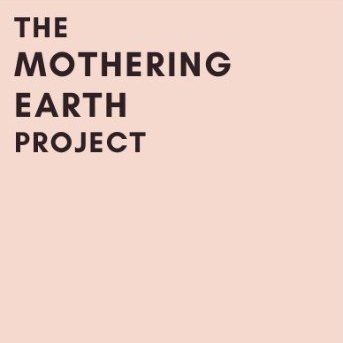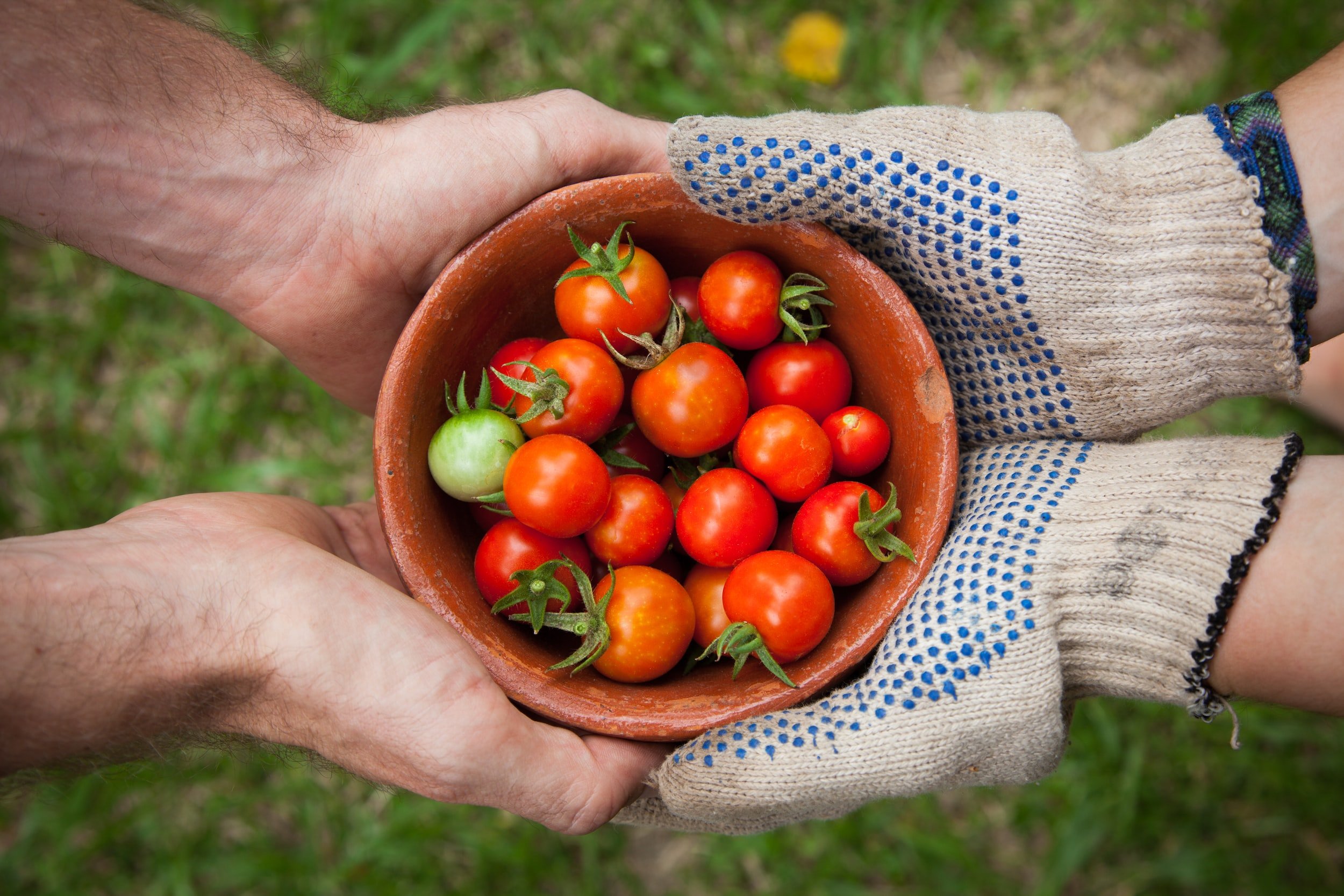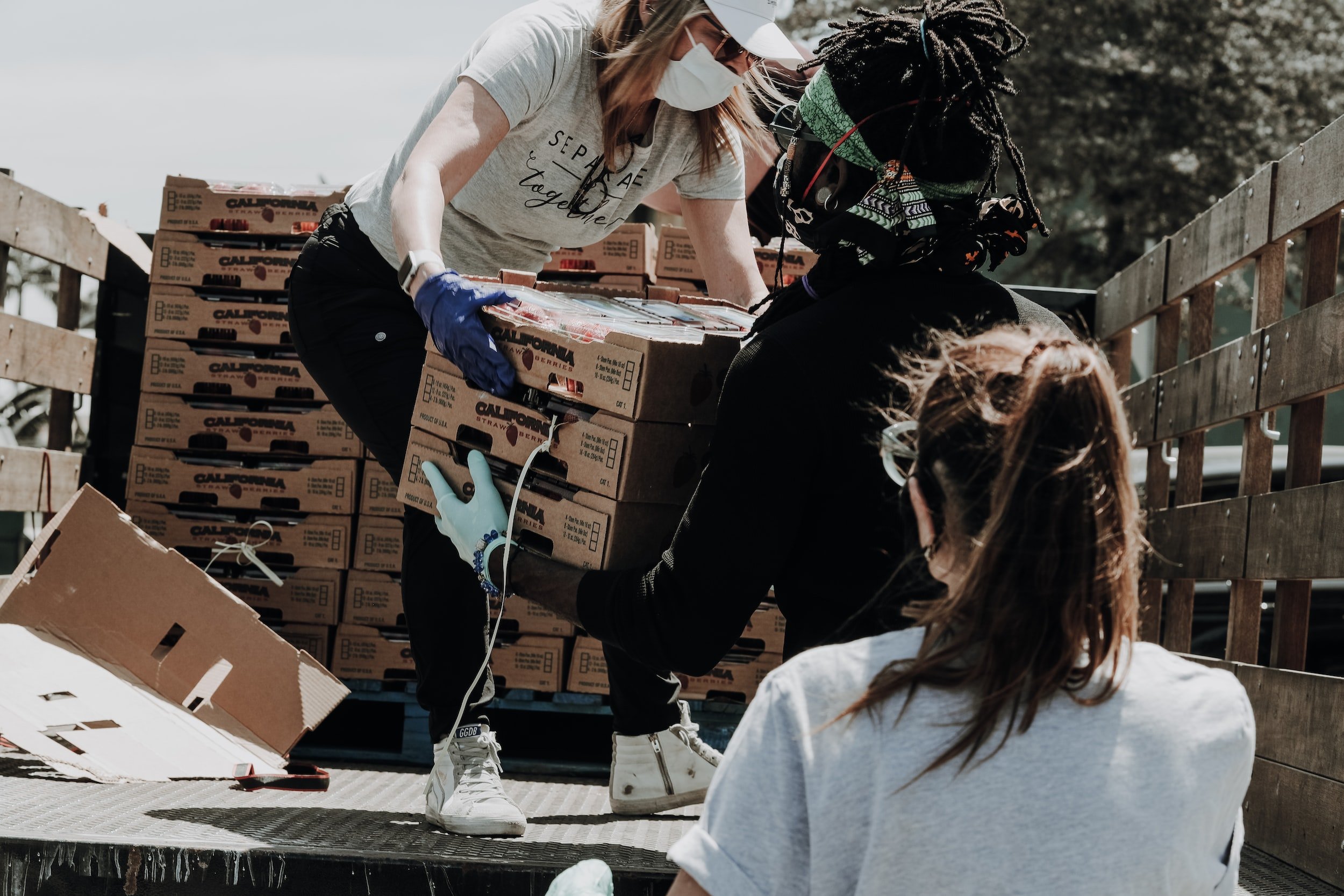
Build community through sustainability.
When we engage and establish ourselves in a community that supports caring for each other and the planet, both our individual experiences and the world at large change for the better.
Using sustainability as a tool to build community allows you to surround yourself with people who are inherently looking out for the well-being of each other and the world around them. Additionally, when we center community-building as a value in our lives, we build a support system around us that helps us thrive — all while uplifting others.
Here are a number of ways to build community around sustainability…
01.
Start a Mothering Earth Meet-Up
Mothering Earth Meet-Ups are one part book club, two parts get-together with kick-ass people, and a cup of powerful hope. Set up weekly (or monthly) meetings and work your way through the book chronologically — discussing a new chapter each week — for an in-depth dive into sustainable living. Use the group as a support system, learn from each other’s successes/struggles, and keep one another accountable as you grow and ease your way into a more sustainable lifestyle. Get the book here.
02.
Find an Eco-Buddy
Call a friend who might be interested in taking action and find your first event to attend. Commit together to go to meetings and speaking engagements (in person or virtually).
03.
Buy Nothing
Join a Facebook Buy Nothing Group or get the app.
Alternatively, you can start your own Buy Nothing WhatsApp chat for friends, coworkers, parents at your child’s school, or even your church group. Post items you’re ready to part with. Begin by sending out an email or letter to anyone you’d like to include in order to gather interest and phone numbers.
04.
Host a Swap n’ Social
A Swap n’ Social is an event where friends can swap items they no longer use. It gives people an opportunity to socialize while getting rid of items they no longer need (and letting them pick up a few new goodies as well).
Set a theme for your Swap n’ Social. Theme ideas could include 1. kid toys and books, 2. baby gear, 3. adult clothing and accessories, etc.
Invite friends to bring 5-10 items that are preloved and in good condition. Place them out so people can easily peruse items and take whatever they need. The more people that come, the more variety – particularly when it comes to clothing sizes. Click here to learn more.
05.
Start a Sustainable Food or Book Club
Start your own group for friends and families. Try organizing around an eco-theme like a Sustainable Book Club, Biodynamic Wine Club, Vegetarian Supper Club, a Bike to School or Work Group, or a Vegan Cookbook Club (where everyone chooses a recipe to test out each month).
06.
Build a Little Free Library
Place a Free Little Library station in front of your home to share used books with neighbors and passersby. Head to littlefreelibrary.org for instructions on how to build and register your library. You could also go rogue and create a puzzle or game swap too.
07.
Start a Coat Swap
Start a coap swap at your child’s school or in your workplace. Ask people to bring in a gently used coat that they have outgrow or outloved. Offer a place for people to hang coats and keep the swap open for a week or a month to give people time to remember to bring their coats in and try coats on. It’s a simple way to share and care for one another each winter.
08.
Join a Community Garden
Grow fruits and veggies, while meeting others who are doing the same. The American Community Gardening Association has a search tool to help you find a location near you.
09.
Start an Office Green Team
You do not need to work for an environmental non-profit or sustainability-based job to be a changemaker. All jobs have an impact. No matter your position, you can influence transformation on a larger scale by being watchful of the environmental effect of your decisions at work.
While it’s vital to make greener workplace choices on your own, starting a Green Team can help make systematic changes through better policies and practices.
Tackle areas like:
Eco-friendly office supplies
401K options that aren’t invested in fossil funding
Green energy and appliances
Building green office habits such as recycling, composting, or turning off lights / unplugging appliances at night
10.
Volunteer
Whether you do it weekly, monthly, quarterly, or annually, folding volunteering into your routine will help you meet others as you’re reminded of the value of community engagement. Volunteer ideas include:
Planting trees
Volunteering at a community garden or local farm
Hosting a food drive
Volunteering at a food bank
Walking (or riding your bike) for a cause
Cleaning up your community, beach, river, or park
Building a Little Free Library or Community Pantry
Rebuilding ecosystems through local habitat restoration
Making and writing postcards advocating for environmental change. Send them to your local and state representatives.
11.
Start a School Garden
Spearhead the development of a school garden. Head to The Edible Schoolyard website for free resources on how to get started along with curriculum and fundraising materials. Build community as you work together to create a space where children can learn about where food comes from while getting their hands dirty. Build community during monthly garden maintenance days.
12.
Take a Class
Expand your mind and meet new people along the way. It could be in a formal classroom setting where you dive into an eco-related subject, outdoors for lessons in gardening or composting, an online session on sustainable banking, or a class at your local community center on green cleaning.
For parents of young children, take a class with an eco-focus such as Cloth Diapers 101, Homemade Baby Food, or Building a Green Registry. Meet other families in the same stage of parenthood who are also working to build a more sustainable world.
13.
Set-Up a Free Pantry
Start a free pantry in the foyer of your apartment building, at the entrance to your child’s school, in front of your home, or in your office kitchen to help reduce food waste and inspire caring for one another.
Encourage tenants, families, or coworkers to share food that would otherwise go to waste. Attach a Free Pantry sign to a secondhand bookcase (cupboard doors are always helpful if the area is prone to pests). Send out an email or post a notice to get others involved. Get the giving started by gathering canned and packaged foods that are going uneaten in your kitchen.
14.
Organize a Purposeful Playgroup
Get your child’s friends (and their families) together to create positive change. Whether your child is three or 13, you can get your kid’s playgroup together to do a beach or park cleanup. Host a group bake sale or lemonade stand and donate the money to a favorite cause. Working with other families toward a good cause builds community and allows you to come together for a greater purpose.
15.
Build Community Online
Get inspired! Follow eco-influencers on social media. This could be anything from climate activists and plant-based chefs to documentary filmmakers or sustainable fashionistas. Like and share changemaker content. Comment, message, and talk about the shifts you’re making with others.
16.
Start a Birthday Box
Organize a box with reusable supplies for birthday parties and lend it out to other individuals or families to use. Gather secondhand plates, cups, cutlery, and a large storage bin. You can even take it up a notch by including gender-neutral bunting and simple decorations. Ask anyone that uses it to wash everything before returning the box to you.
17.
Organize a Costume Trade
Host a costume trade at your office, child’s school, community center, or home so used Halloween costumes can find new life. (And bring joy.)
Gather costumes in advance of the trade by sending out a message to others asking them to bring in costumes that they or their children have outgrown or outloved. Announce a date for the trade. Day of, put out all of the apparel organized by size and invite everyone to pick out a new costume.
Don’t forget to make a plan for costumes that don’t get selected. (Consider posing on Buy Nothing, sending them to Weendream, or giving them to a preschool for dress-up.)
18.
Find Your Crowd
Use online organizations to search for free eco-focused gatherings in your area. Meetup.com, hikeitbaby.com, and Facebook groups are helpful tools to find others interested in sustainability.
19.
Host a Fix-it Fair
Do you and your friends know how to work a sewing machine? Are you handy with broken furniture or appliances? Host a fix-it fair. Invite other volunteers who have repair skills and see if you can get a local community space to host it. Spread the word to neighbors and the public at large. Set up tables for the craftspeople to work. Set up a line and have an intake person who can direct people with broken clothing and items to the person who can help repair it. It’s a fun way to build community and keep things out of the landfill.
20.
Host a Sip and Sew
Do you love to sew? Host a Sip and Sew! Invite friends over to mend clothing together or make produce bags together out of old pillowcases and sheets.* Ask people to bring their sewing machines or simple needles and thread. Break out the wine and get sewing.
* If you make more produce bags than you can use between the group, hand them out at your local farmer’s market for free.
Looking for more eco-living inspiration?
Check out our blog categories below…











